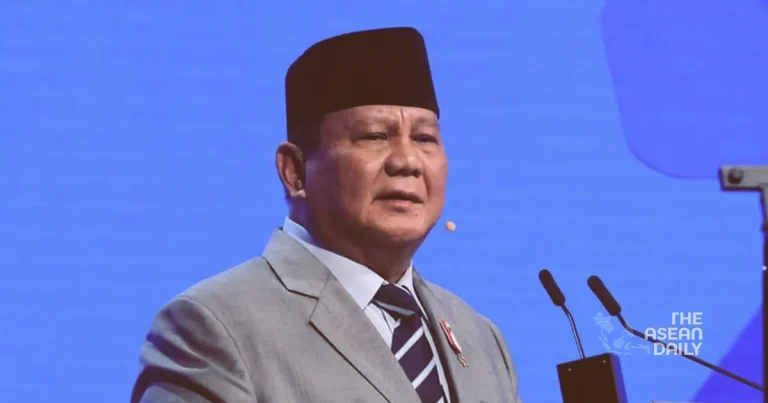27-7-2024 (JAKARTA) As Indonesia prepares for a change in leadership this October, political analysts are closely watching President-elect Prabowo Subianto’s early moves, which suggest a strategic positioning of loyalists in key government roles. This development comes in the wake of two significant appointments made by outgoing President Joko Widodo, raising questions about the nature of the transition and the future direction of Indonesian politics.
In an unprecedented move for an outgoing president, Widodo recently appointed two members of Prabowo’s inner circle to deputy ministerial positions. On 18 July, at a ceremony held in the Presidential Palace, Thomas Djiwandono, Prabowo’s nephew, was sworn in as second deputy finance minister, while Sudaryono, a senior member of Prabowo’s Gerindra party, assumed the role of deputy agriculture minister.
These appointments have sparked considerable debate among political observers. Dr Amelia Tan, a Southeast Asian politics expert at the University of London, commented, “The timing of these appointments is highly unusual. It suggests a level of cooperation between Widodo and Prabowo that goes beyond the typical transition of power.”
Prabowo’s landslide victory in February’s general election has been largely attributed to tacit support from Widodo, who is completing his constitutional two-term mandate. The president-elect’s running mate was Widodo’s eldest son, Gibran Rakabuming Raka, further cementing the connection between the two political figures.
However, despite initial expectations that Prabowo would continue Widodo’s existing plans, including the ambitious US$32 billion Nusantara project to build a new capital city, analysts now suggest that the incoming president may chart his own course.
Professor James Thompson, a political scientist at the Australian National University, noted, “Prabowo’s campaign promises, particularly his plan to provide free meals to 83 million Indonesian schoolchildren, indicate a shift towards more populist policies. This programme alone is expected to cost up to US$27 billion annually when fully implemented by 2029.”
The recent appointments are seen as a strategic move by Prabowo to ensure his ability to implement his agenda effectively. Dr Tan explained, “By placing loyalists in key positions, Prabowo is laying the groundwork for his administration. This could be crucial for securing a second term by demonstrating his ability to deliver on campaign promises.”
However, these developments have also raised concerns about potential nepotism and political favouritism. Critics point out that Thomas Djiwandono, the new deputy finance minister, is currently the deputy chief executive officer of Arsari Group, a conglomerate owned by Prabowo’s brother, Hashim Djojohadikusumo.
Dr Sarah Lee, an Indonesia specialist at the SOAS University of London, cautioned, “While political patronage has long been a feature of Indonesian governance, the concentration of power within Prabowo’s family and party circles could limit the diversity of voices in policy-making.”
Despite these concerns, some observers argue that the appointments could provide continuity and reassure investors during the transition period. Thomas Djiwandono himself stated that his appointment indicated “continuity” between the outgoing and incoming governments.




